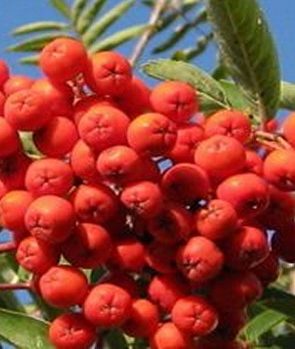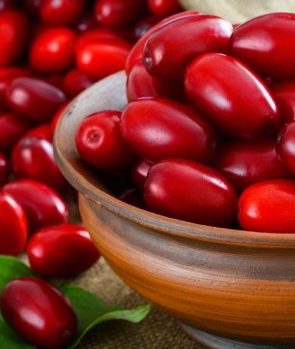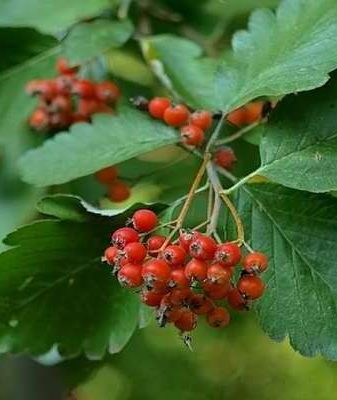Rowan fruits: useful properties
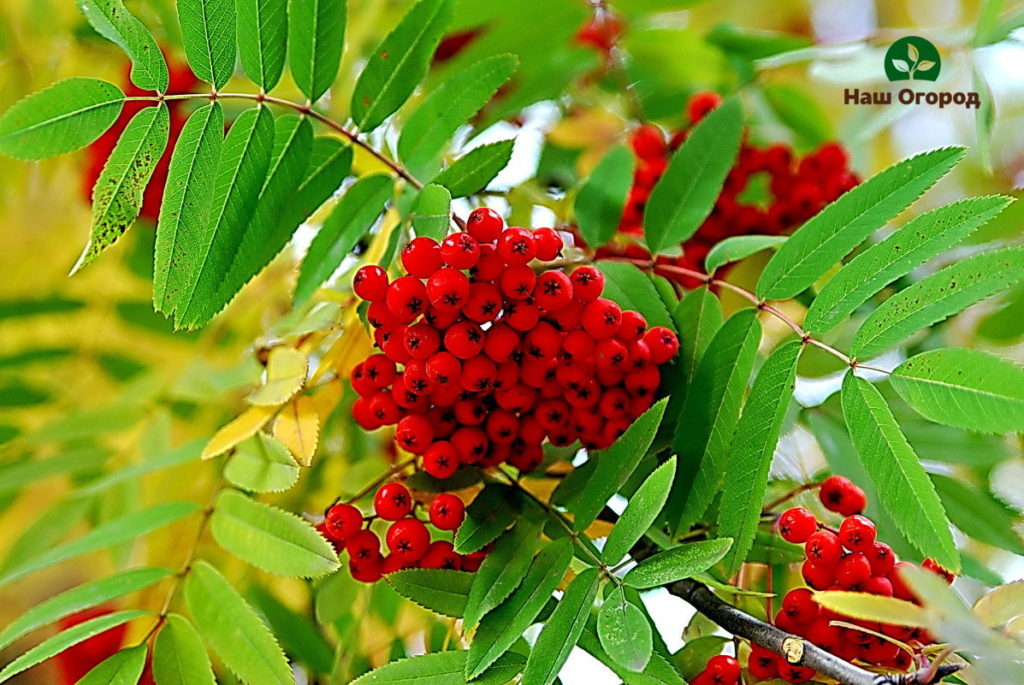
Rowan fruits: photo of berries
Rowan (Sorbus aucuparia) owes its scientific name to the Latin verb aucupor, which means “catch birds”Because the autumn berries attracted birds. The flowers are small and white, and from them a mountain ash is born, similar in shape to small apples. Rowan fruits appear in September and contain organic acids, sugars, alcohol, pectins, vitamin C and tannins, thanks to which they have antihemorrhagic, anticorbic, astringent, diuretic, antirheumatic properties.
It is one of the oldest fruit trees, originating from southern Europe, Asia Minor and northern Africa. Also in Russia it is widespread due to the presence of a favorable climate for its growth.
The rowan plant develops as a small, very long-lived tree. It can live up to 200 years. Its growth tends to be very slow. Perhaps this is one of the possible reasons why it is not so easy to cultivate, despite its merits.
In Northern Europe, the Celts and Germans attributed magical powers to this tree, used it for protection from demons and sorcerers, as well as for protection from lightning and spells. Even today, it is believed that whoever owns a rowan tree in their backyard will always be accompanied by good luck.
Ripe, very delicate and sweet rowan fruits appear only after a certain ripening process has passed, which eliminates the tannins that make them tough.
Ripe fruits of the mountain ash plant have various beneficial effects, as is known to migratory birds that feed on them.
It contains a group of vitamins such as A, C, B1, B2 and B3. Among the mineral salts are potassium, magnesium and calcium.
The bark is known for its astringent properties, beneficial for gastrointestinal disorders such as diarrhea. Therefore, this botanical part can be used to prepare infusions.
Due to the high concentration of antioxidant substances, one of the beneficial effects is the ability to counteract the action of free radicals. Finally, the presence of vitamin C in rowan berries helps to strengthen the immune system.
Cultivation.
Rowan fruits can be eaten fresh, dried, in the form of jam or jam. Previously, it was also a fermented drink, highly alcoholic. Also, some craftsmen have learned how to make a kind of low-alcohol drink that replaces cider.
Rowan cannot stand the sultry heat, high temperatures combined with stagnant air and extreme dryness of the soil. All trees can withstand up to 35 C below zero and endure late frosts in spring or early autumn, as well as very heavy snowfall with snow on the branches and around even for several months.
Planting takes place from October to March, apparently on unfrozen ground, at a distance of at least 5 m from other trees. They cannot live in pots because the root system is too wide and deep. Irrigation is necessary regularly and abundantly in the first year.
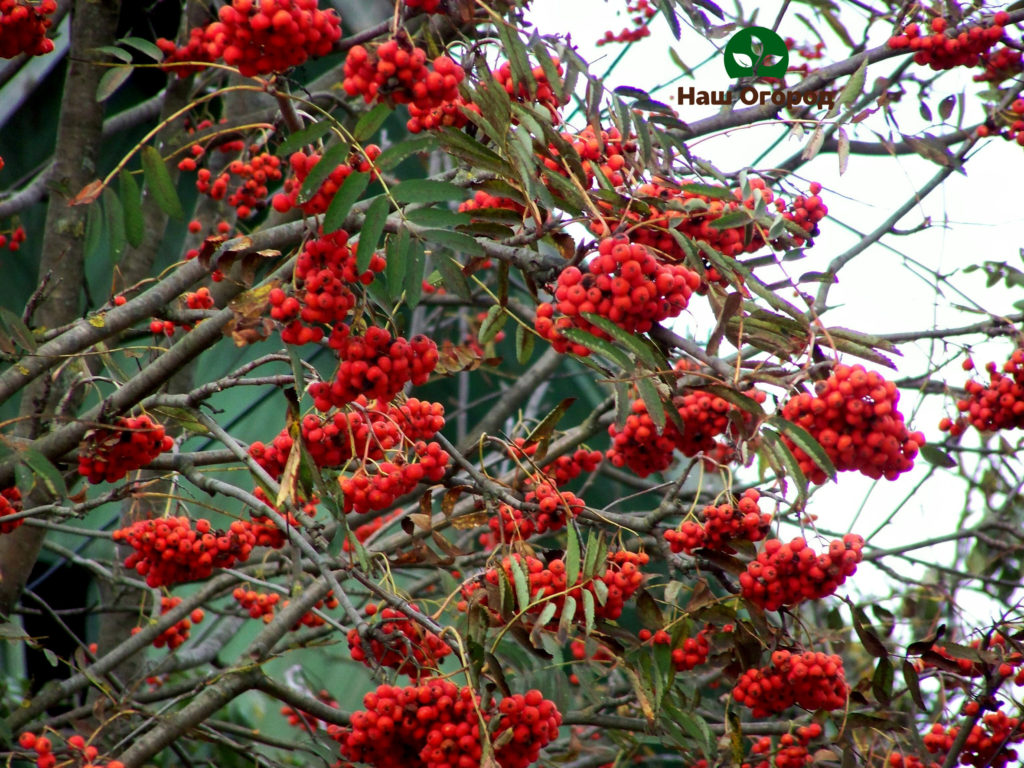
Rowan fruits: photo of berries
Later we start rescue operations in the summer during the first 5-6 years after landing. They should be fertilized with 2 kg / plant mature manure or 200 g dry manure each year in November for the first 5-6 years. In the following years, fertilizers are no longer needed.
They do not require cutting, because the shape is free, natural. You can start pruning dry and diseased branches in winter when the plant is resting.
At the end of spring, you should carefully examine your tree, because just at the end of spring and at the beginning of summer, the first signs of diseases such as anthracnose, powdery mildew, brown and gray spots, monoliosis may appear.
It is very important not to miss the first signs of diseases of the rowan fruits and immediately begin treatment with means specially designed for these diseases. Only weakened trees are susceptible to these diseases. If you have planted an absolutely healthy tree and followed the rules for planting and caring, then your favorite tree will not be sick.
Rowan fruits: the use of berries
In case of intestinal problems: Eat 30 g of raw rowan berries throughout the day until symptoms disappear.
To aid digestion: Place 200g of unripe rowan berries in a 1L bottle, add 200g of sugar, some lemon peel, cinnamon and cloves and cover with alcohol. Leave in the sun for a month, drain; drink a small glass after meals.
Among natural remedies for coughs: crush 10 grams of fresh rowan berries to remove the seeds, place the pulp in a cup of boiling water and leave to infuse for 15 minutes; strain and drink 2-3 cups a day.


